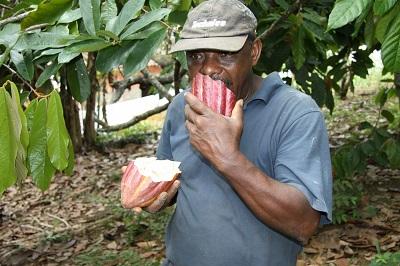An Earthly Paradise for Holidaymakers and Gourmets

Brazil is a role model in nutrition issues
Who does not dream of a trip to Brazil? Breathtaking beaches, wild natural landscapes, and exotic animals lure the visitors to the largest South American country. Cheerful people, hot temperatures, and lots of sunshine are waiting for you. One of the advantages of a Brazil vacation is the tasting of local dishes. Traditional specialties are feijoada (bean stew with meat), moqueca (fish stew), tapioca (sweet or savory filled pancakes made of mandioca starch flour), pão de queijo (cheese rolls), and much more. A freshly squeezed fruit juice or a cool caipirinha round off the taste experience. The quality of the food speaks for itself and receives a seal of approval from international nutritional experts, who increasingly point to the exemplary Brazilian food culture.
The focus of the recognition is the "Guia Alimentar para a Populacao Brasileira". In 2014, the Ministry of Health in Brasilia published these nutritional guidelines for the population. The message of the Guia Alimentar is simple: to eat mainly natural foods and to consume them in company. This sets Brazilian philosophy apart from traditional principles that have been spread around the world. Often a balanced diet is represented in the form of a pyramid. Food is assigned to nutritional value groups: Carbohydrates, proteins, fats, etc. The calorie content of the individual foods determines the healthy consumption quantity.
Brazil has revolutionized, i.e. simplified, this very theoretical theory of nutrition in 2014. The comprehensible and easy to implement alternative for the layperson includes the following categories:
natural (vegetables, fruit, fish, meat, rice, cereals, milk, and so on)
supporting the taste (salt, pepper, sugar, oil, and similar)
industrially processed (for example fast food, snacks, sweets)
Brazilians are advised to make original food an essential part of their diet. This does not mean consuming only fruits and vegetables. Rather, agricultural products should be given preference over industrially manufactured products. To achieve an optimal taste, the flavor carriers sugar, salt, and oil can be used in moderation. Industrial products such as chocolate bars, snacks, ready-made pizza, and lemonade should be avoided if possible. The Brazilian Ministry of Health advises preparing everyday meals at home to maintain control over the quality and quantity of meals. Not to be neglected is the social aspect of eating. The guidelines from Brasilia state that eating is a social event. Sitting together at the table means cultivating relationships with family and friends.
In the Guia Alimentar there are commandments but no prohibitions. The Brazilian health experts remain true to the relaxed motto of their country: Good humor and fun make life and therefore also the diet worth living!
During a Brazilian vacation, you can get an insight into the agricultural economy. About one-third of the total area is used for agriculture. The main agricultural products are coffee, sugar cane, soy, oranges, pineapples, and bananas. Part of a family trip to Bahia is the visit of small fazendas (farms). There, mandioca (potato-like tuber vegetables), cocoa, and guarana (tropical fruit and a well-known source of energy) are cultivated and harvested. Of course, you are allowed to taste on site.
The Brazilian state of Minas Gerais is famous for its hearty and delicate cuisine. An excursion to the former gold mining town of Ouro Preto can be wonderfully combined with one or the other gastronomic experience. Why not drive to some of Brazil's highlights by rental car and turn the trip into a gourmet tour?
Whoever has their mouth-watering now can start planning their Brazil vacation right here.
Sources: vox.com; postalsaude.com.br

